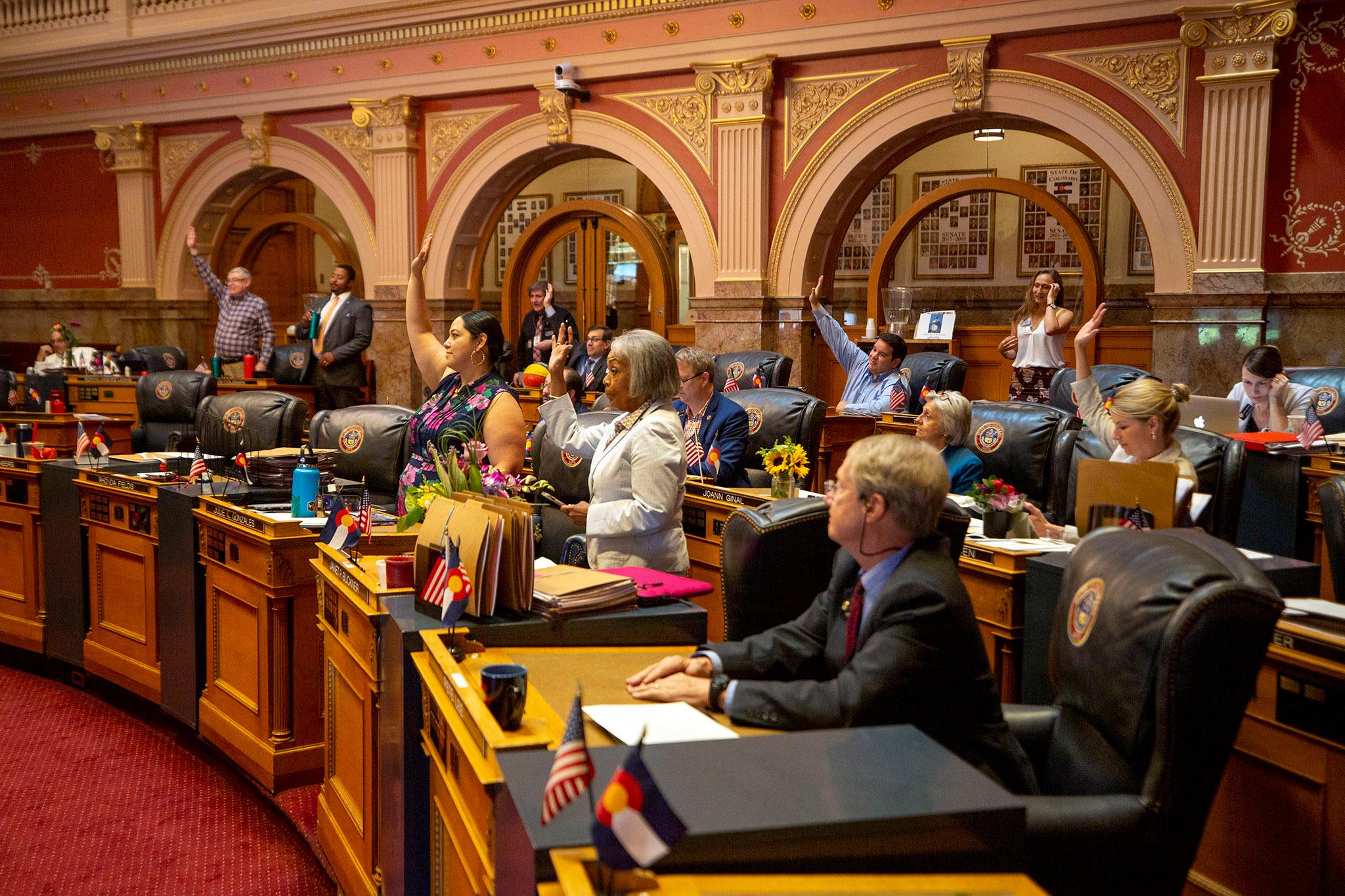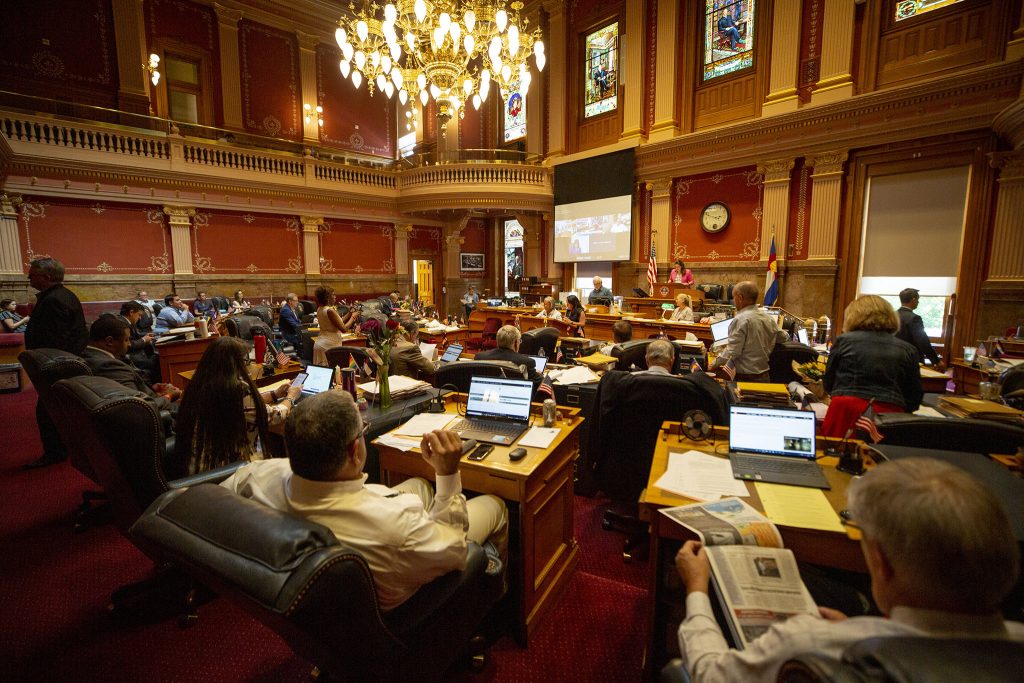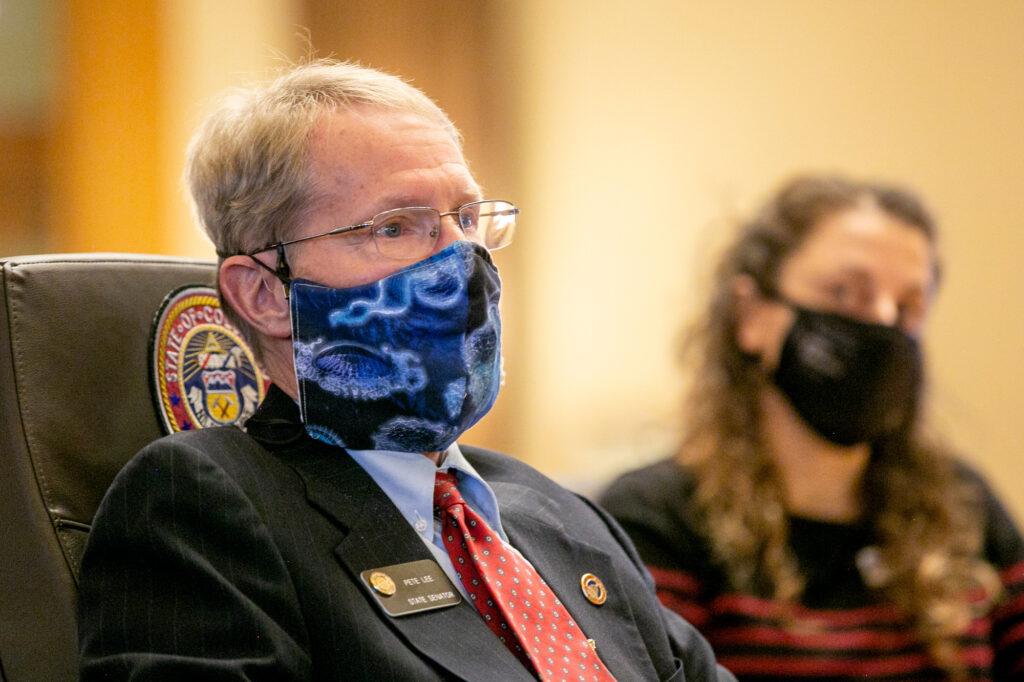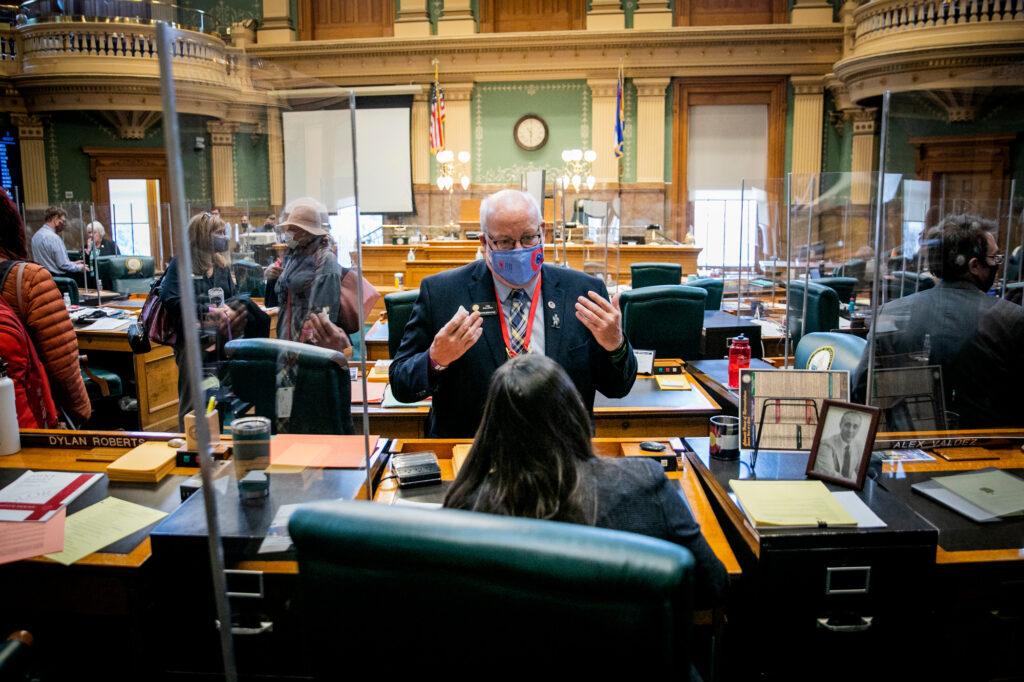
When Colorado Senators learned that their colleague Chris Hansen wasn't joining them for the last day of the legislative session because he'd flown to Mexico that morning, there were a few jokes, a little bit of grumbling, but also understanding.
"I just told him to go enjoy his vacation," said Democratic Senate Majority Leader Steve Fenberg.
Lawmakers have spent the past year and a half cycling in and out of the Capitol due to the pandemic’s delays and demands.
“I don't even know how many sessions we squeezed into that 18 months, but it seems like it's been a lifetime,” Fenberg said, just moments before the Senate adjourned.
In a normal year lawmakers would have wrapped up a month ago -- and they all said they were ready to take a break.
“The sheer volume of bills that we had was really something I didn't anticipate,” said first year Democratic Senator Sonya Jaquez Lewis of Longmont.
Lawmakers had to address the problems caused by the pandemic, at the same time they revived bills the disease derailed last year, and introduced new ones.
This proved to be an especially intense year for the newest members, who won their seats in November and found themselves debating major policies as well as sometimes intensely personal issues. Rep. Jennifer Bacon of Denver said she hadn’t quite expected her colleagues to be such regular people, with the same variety of views found across society.
“We were arguing with regular people that systemic racism and climate change are a thing, you know?” said Rep. Bacon, who is a member of the Democratic Black Legislative Caucus. “So I'm still trying to make sense of what this means in a very human and real level, (for) the rules that are made for people in this state.”
Bacon also said she’s still wrapping her brain around how much of lawmaking is traditional organizing, and how much is persuasion and relationship building.
“I'm struggling with that.”

State finances have also kept lawmakers on their toes. After cutting billions of dollars last spring, this year lawmakers had to decide what to do with an influx of federal and state funds, thanks in part to a stronger-than-expected economy bouncing back from the pandemic.
At one point Republican budget committee member Sen. Bob Rankin of Carbondale said it was such a wild ride, someone should write a book about it.
“Here's federal stimulus, here's money spent this year, here's money put in various categories that we're going to study over the summer through interim committees. So that's all been kind of a complicated process to work out how that will be managed,” he said.
Democrats find their majority doesn’t protect every bill
For the third year in a row, Democrats held a wide majority at the Capitol, and continued to set the agenda, passing a host of Democratic priorities, including: a $5 billion transportation funding proposal, significant changes to the tax code, measures to help undocumented immigrants and workers rights, efforts to reduce health care costs, and major policies around renters rights, guns, criminal justice, and climate change.
“I think it was responding to our constituents,” said Democratic Sen. Faith Winter of Westminster, who was the main sponsor of the climate bill that set out to empower Colorado’s air regulators to enforce the state’s greenhouse gas emissions goals. Polis signed the targets into law in 2019 but threatened to veto the bill in its original form until he reached a compromise with the more progressive members of his party.
Negotiations over the policy stretched on for so long that it was the very last bill across the finish line before lawmakers adjourned. Backers accepted a compromise that restricted the bill’s scope so that it will cover emissions from the energy sector, electrical utilities and industry, but not from transportation or buildings.

The compromise didn’t include Republicans, who opposed the policy and objected fiercely to being asked to vote on a heavily amended bill so late in the process. They filibustered its re-passage to the best of their ability under the rules, but eventually had to accept that they couldn’t delay it any longer. Three Democrats joined with the GOP to oppose it.
This wasn’t the only significant policy Democrats altered in order to pass. And they also saw some of their top priorities fail in the final days of the session. The House Judiciary Committee overwhelmingly defeated Winter’s bill that would have updated and expanded the state’s workplace harassment laws.
It was a huge win for the business community, which considered the changes nebulous and warned they would be costly. However its defeat was a blow to Democratic women lawmakers in particular; they had collectively ranked the bill as the number one policy they wanted to pass this session and it had already cleared the Senate with bipartisan support.
“We know the number one reason women don't come forward is they don't think anything will be done and they're going to face retaliation. This bill was meant to correct that,” Winter said.
Democrats in the House also ended up rejecting a top priority for criminal justice reform advocates. Senate Bill 273 would have prohibited law enforcement officers from arresting people for many misdemeanors, unless they involved a Victims Rights Act crime, possession of a deadly weapon, or the person was suspected of driving under the influence, among other exceptions.
The bill’s main sponsor, Democratic Sen. Pete Lee from Colorado Springs, was sitting in the back of the Senate when he got word from a reporter that it had failed in committee late Monday night.
"I am surprised, shocked, frustrated, deeply disappointed. I thought we had put that bill into really good shape. And we could have made additional modifications,” said Lee, looking shell shocked.

"Who I'm really disappointed for are the people in the community who this bill was designed to address. This was a harm reduction bill to reduce violence in communities by trying to alter the relationship between the police and the people that they're dedicated to protecting and serving."
Still Democrats made other gains in their criminal justice reform policies. They passed a bill to limit the use of the powerful sedative ketamine in law enforcement settings. And people who are arrested anywhere in the state will now be assured of seeing a judge within 48 hours, even on weekends. They also added new provisions to last year’s broad police accountability bill.
Lawmakers divided on guns, but more united on marijuana
This session saw more gun restrictions pass than ever before. A half-dozen new laws will mandate reporting of lost and stolen firearms, require safe storage, expand universal background checks, allow cities to pass stricter gun laws than the state, and require that a background check be complete before a gun transfer can go through.
Demcratic Rep. Tom Sullivan of Centennial sponsored several of the bills, including one to create an Office of Gun Violence Prevention. He ran for office after his son Alex was killed in the Aurora Theater Shooting. He’s made it a point to talk publicly about his son and the human toll of gun violence.
“That's been my conversation with leadership and the rest of the caucus — that we're going to talk about this, just like you talk about transportation and education and healthcare and mental health, you're going to talk about those every single time,” he said.
Some of the gun bills were in response to the mass shooting in Boulder, while others were in the works well before the start of session. Ultimately Democrats did not have enough support for a statewide assault style weapons ban as some advocates had wanted.

While the gun votes predictably fell along party lines, there was plenty of bipartisan support for other measures. The parties were largely in agreement on a bill that restricts the amount of medical marijuana 18-to-20-year-olds can purchase and sets aside several million dollars to research the health impacts of highly potent marijuana.
Republican Sen. Kevin Priola and his wife even made the decision to testify in support of House bill 1317 when it went before a legislative committee and talked about the challenges they’ve faced with their own son using highly potent marijuana.
“It's not always pretty. It's truly a struggle. And I know from conversations with other parents they're going through the same thing,” he said.
Wrapping up and looking forward
Priola lives in Henderson and is known as the legislature’s most moderate member; he was the only Republican to join Democrats in crafting their $5 billion transportation bill. But in reflecting on the session, he said that in many ways Democrats flexed their political might more so than in year’s past, when their majority was narrower.
“I kind of understand their perspective coming out of last November's election,” said Priola. But he doesn’t think Democrats can count on such a favorable political environment next time around, with their party in control in Washington, DC, as well as Denver. “In my experience, their side's going to have a little bit of a headwind in 2022, and that's just the nature of politics.”
And Republican Sen. Jim Smallwood of Littleton said he’s glad that in some cases Democrats didn’t get quite as much done as they had intended, pointing to several big bills that were pared back through amendments.
He thinks Democrats were more focused on racking up wins, “even if it meant really changing the bills, really watering the bills down.”
In the end, after a session in which legislators had to juggle the demands of the pandemic with the normal stresses and challenges of lawmaking, Smallwood’s Republican colleague Don Coram of Montrose summed up what many across the aisle and in both chambers at the Capitol were likely thinking on that final day:
“We need to go home.”
Editor's Note: This story has been corrected; an earlier version misstated when an officer would have been able to make an arrest under SB21-273.









